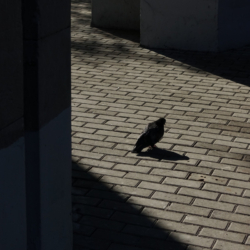| Source (Hebrew) | Translation (English) |
|---|---|
נוסח הווידוי דברים ראוי לאומרו אחר תפלת שחרית וערבית כל הבא בימים מחמשים שנה ואילך [נוסח] הווידוי |
After reciting the Amidah for Shaḥarit and Arvit, everyone over the age of fifty (50) must engage in vidui (confession). The following is the formula of the vidui to recite: |
מוֹדֶה אֲנִי לְפָנֶיךָ ה’ אֱלֹהַי וֵאלֹהֵי אֲבוֹתַי שֶׁמִּיתָתִי בְּיָדֶךָ · יְהִי רָצוֹן מִלְּפָנֶיךָ שֶׁמִּסְפַּר יָמַי תְּמַלֵּא וּכְשֶׁאָמוּת תְּהֵא מִיתָתִי כַּפָּרָה עַל כׇּל חֲטָאִים וַעֲוֺנוֹת וּפְשָׁעִים שֶׁחָטָאתִי וְשֶׁעָוִיתִי וְשֶׁפָּשַׁעְתִּי לְפָנֶיךָ וְתֵן חֶלְקִי בְּגַן עֵדֶן וּתְזַכֵּנִי לְעוֹלָם הַבָּא הַצָּפוּן לַצַּדִּיקִים אָמֵן׃ |
I acknowledge before you, YHVH my elo’ah and elo’ah of my ancestors, that the timing of my death is in your hand. May it be your will that I live a full lifetime and that when I die, may my death be a penance for all the sins, iniquities, and crimes that I sinned, transgressed, and committed before you. Please place my lot among those in Gan Éden and may I merit to be awarded Olam ha-Ba[1] The world that is coming, i.e., a world without predation. which is set aside for the righteous. Amen. |
This vidui prayer for those privileged to live past the age of 50 is found in Rabbi Mosheh ben Zevulun Eliezer Halperin’s Zikhron Mosheh (Lublin: 1611), siman 13. The prayer is also found quoted by Rabbi Avraham Azulai (1570-1643) in his הגהות (commentary) on HaLevush haTekhelet (1590) by Rabbi Mordechai ben Avraham Yoffe (1530-1612). Many thanks to Abraham Katz for informing us of this prayer and for his original effort. Many thanks as well to Yael Levine for her help clarifying the source of the prayer and to Yael and Isaac Mayer Gantwerk for proofreading and correcting my vocalization. –Aharon Varady
Source(s)

Source sheet by Abe Katz containing Sefer Zikhron Mosheh (Mosheh ben Zevulun Elazar Halperin), p. 8 (siman 13).
Notes
| 1 | The world that is coming, i.e., a world without predation. |
|---|

“וִדּוּי בַּיָּמִים מֵחֲמִשִּׁים שָׁנָה וְאֵלֶךְ | Vidui for those fifty years old and over, by Rabbi Mosheh Halperin (1611)” is shared through the Open Siddur Project with a Creative Commons Attribution-ShareAlike 4.0 International copyleft license.










Comments, Corrections, and Queries